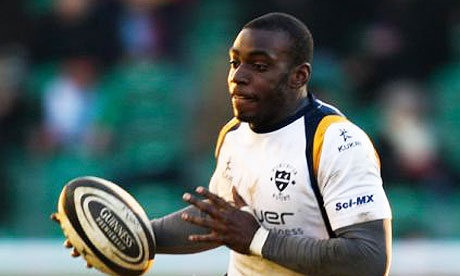
Just in case your sigh is long as you read that the rugby season is upon us already, may you be consoled by the thought that others suffer even greater saturation. The French, for example.
On 28 June, Toulouse beat Clermont Auvergne in the final of the French championship. The French international team, without players from those two clubs, were by then in Australia, about to lose their second Test, as they had the first, to the Wallabies. That took French rugby into July.
Last Tuesday it restarted, with defeats, incidentally, for both Toulouse and Clermont, by Montpellier and Toulon, two thrusting clubs of Le Top 14, whose very number explains why the French season is so long.
Toulon, by the by, have loads of money, thanks to their president, Mourad Boudjellal. They are managed by former All Black Tana Umaga and have tempted some of rugby's more colourful characters, such as All Black Jerry Collins and Sonny Bill Williams, to the Riviera.
Williams came off the bench against Clermont and turned the game, becoming an instant darling of the home crowd of 14,000. If ever Munster play Toulon at the Stade Mayol, we shall have the ultimate rugby atmosphere.
Or perhaps Munster will generate it at home, with their new Thomond Park opening in November. We should say a little something for the souls of those opponents who must go there.
Tony McGahan, an Australian and former defence coach under Declan Kidney, now takes charge of the defending European champions, Kidney having been given the Ireland job.
I was going to put 'promoted to the Ireland job', but the Irish seem ill at ease with themselves. 'Is Brian O'Driscoll a spent force?' appears to be their question of the moment.
In Wales, the only ripple across smooth waters is underachievement by the regions. The grand slam champions of the Six Nations will play Canada, South Africa, Australia and New Zealand and will be looking for a minimum of three wins. There is steeliness in Warren Gatland's Wales, and coyness about their prospects is damned as flimsy.
Trouble in Wales comes one rung down. Lyn Jones lost his job as coach of the Ospreys last season. Steering them to victory over Leicester in the EDF Energy Cup was countered by Heineken Cup defeat to Saracens.
Sean Holley and Jonathan Humphreys, former assistants to Jones and now in charge, simply have to succeed in Europe. An away trip to Leicester on the first Heineken Cup weekend in October makes the demand all the more extreme.
The Llanelli Scarlets will have a new stadium, Parc y Scarlets, a couple of miles east of the tumbledown Stradey Park, and a new coach, Nigel Davies, who returns in charge after a long apprenticeship under Gareth Jenkins with both the Scarlets and Wales. There is much of the new in west Wales, but that includes the challenge of playing without scrum-half Dwayne Peel, who has moved to Sale.
Which brings us into England, whose demands make any pressure on the Welsh regions seem like requests for petty favours. England is the most demanding rugby country on earth.
If newness is a theme, England can claim the freshest of starts, what with Martin Johnson now in charge of the national team and with the arrangement between the clubs and England finally operational.
But whatever the financial compensations for the clubs, whatever the rest periods, whatever the sense of purpose under Johnson, there will still be nothing but exhaustion for England's finest when, finally, what begins next weekend draws to a close, way down the line in South Africa, at the end of the Lions tour next summer.
The best players in the Magners League will be eased through the season, but there will be no such luxury in the Guinness Premiership, where every game is an absolute test of body and mind.
English club rugby is ludicrously confrontational, majestic in its own way, but bone-headed at the same time, an all-too-willing self-sacrifice by the players to their crowds, which will no doubt swell again, and yet myopic.
There are signs that clubs will try to be more inventive, following the lead of London Irish, Gloucester and Bath. Worcester are branching out, sending ball to their wings, with Rico Gear always one to admire and Miles Benjamin one to watch.
Northampton will bring wit back to the top flight, with Chris Ashton and Joe Ansbro in the centre, and with Ben Foden, recruited from Sale, promised a chance to shine at last at scrum-half.
But when it comes to the acts of survival, the real England will shine through. It will not be pretty, just very tough down at the bottom.
Likewise, when it comes to loosening the grip of the giants at the top, it will not be done by daintiness. To beat Leicester and Wasps, teams such as Saracens and Sale will have to ask for more of what makes the game shudder.
Even as early as the third month of this season, when England launch the Johnson era with a quite ferocious foursome of fixtures in the autumn internationals - Pacific Islands, Australia, South Africa and New Zealand - there is bound to be an injury 'situation', which is the way they describe a head-count of anyone still standing.
So, we're off again. Whatever the consequences of the new laws, in England there will still be collisions. Hold back that sigh, unless of course it escapes because rugby moves the earth for you.

